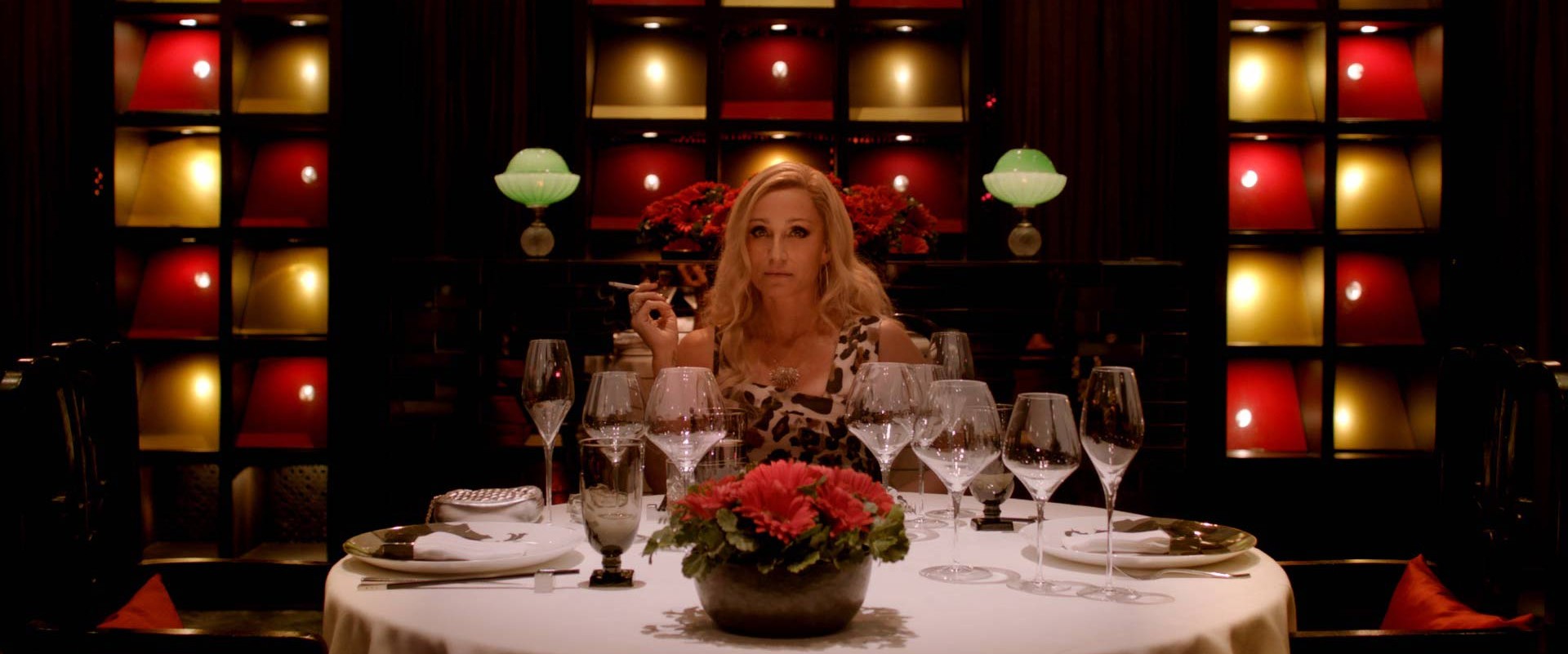Danish writer/director Nicolas Winding Refn’s latest film comes exactly two years after his phenomenally successful ‘Drive’, and once again features Ryan Gosling in a central role, together with sharp ultra high resolution digital camera work (specifically, using the Arri Alexa), and more stylised and brutal violence. This is a lot more surrealist than Drive was, with the story set in Thailand and focusing on a pair of American brothers who run a boxing gym as their legitimate business enterprise, with all manner of things going on behind the scenes. When one of them commits a particularly heinous crime, it sets in motion a whirlwind of bloody acts, which also draws their mother, played by Kristin Scott Thomas, reluctantly from the States and into the fray.
It is the backstory of Gosling’s character Julian, one of the brothers, that really anchors the piece, and indeed the entire film could be viewed as the inevitable cosmic consequence of what he has done. Or, perhaps, what his psyche does to itself, as feeding into this, it is not always apparent whether what we are viewing is really happening, or is simply the visualisation of Julian’s thoughts, fears, and desires. With ‘Drive’, I really didn’t see what all the fuss was about, it was essentially a cinematic version of the video game ‘Grand Theft Auto : San Andreas’, and anyone familiar with the game would likely not find anything terribly original in the film. This time around, however, I am a fan of what I think the director was trying to achieve. He has certainly been successful with the stylisation of the local Thai police investigator Chang (Vithaya Pansringarm) who operates throughout like a nihilistic ninja, a personification of consequence enforcing the balance of nature via murder.
Unfortunately, the film does suffer from several over indulgences, and a heavy dose of gratuity when it comes to the violence – some of which is arguably necessary, but, as with several instances in Tarantino’s career (or, worse yet, Eli Roth), there will come moments that have you wonder whether their inclusion has more to do with childish bloodlust rather than story. The beginning suffers the most from that dreaded criticism of art house fare – laughability, as parts, in between the segments of gritty horror that this film depicts, just seem a bit silly. It reminds The Red Dragon of a version of Chekhov’s Three Sisters that he once seen onstage where the actors constantly stopped and stood still for ages in complete silence (this was supposed to be for reflection, but made the piece over three hours long, and when one is a dragon trapped in the centre of the Grand Circle for what seems like an eternity whilst absolutely nothing happens onstage at all, one very quickly gets HUNGRY, a state of being which my insatiable insides decided to announce to THE ENTIRE AUDITORIUM for the duration of the play. My stomach, in fact, became the narrator for Chekhov’s Three Sisters), something similar happens here – this is most definitely not a film to take lots of popcorn, or food in general, into.
These points aside, I am absolutely in love with the cameras they used, which show everything in pristine detail and manage to make what is probably otherwise an average grubby looking street, appear quite beautiful onscreen, a combined success of equipment and the strong and memorable choice of lighting used throughout. The acting is equally sharp, with Kristin Scott Thomas in particular giving a truly powerful and domineering performance, wielding her character with a crackling vehemence, one given extra gravitas and authority by a commanding American accent.
Worthy of note for what it attempts to do, though do be prepared for sanguine and despotic darkness from start to finish and it remains to be seen whether its misgivings will be bumps in the road for Nicolas Winding Refn, or will entrench themselves into stylistic trademarks. It also seems likely that the director may have delved into Thai cinema for research, certainly the feel of the editing and some of the shots used evoke memories of the work of Apichatpong Weerasethakul, and his Palme d’Or winner ‘Uncle Boonmee Who Can Recall His Past Lives’ (10). Just like ‘Drive’ before it, the film is dedicated to the (still living) Chilean-French surrealist director Alejandro Jodorowsky, of whose work ‘El Topo’ (70) is absolutely recommended viewing.

